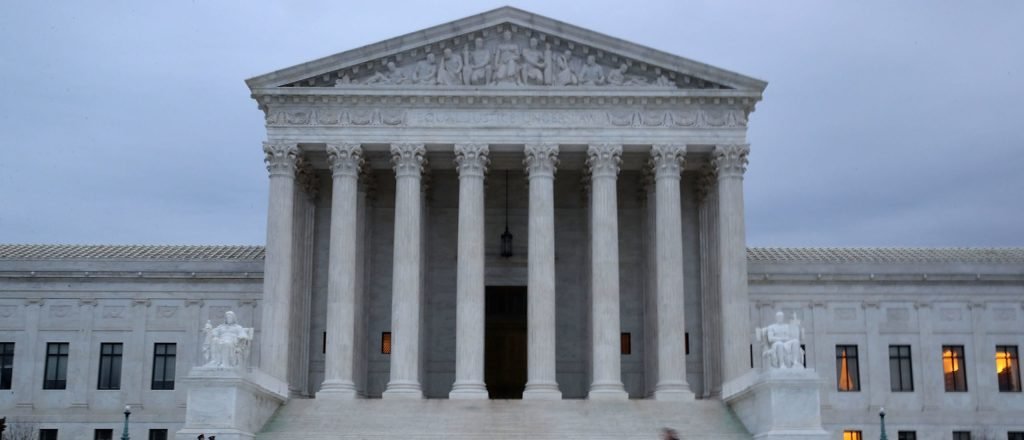I've often thought that Woodrow Wilson was the worst president after Abraham Lincoln. By worst, I mean those with the least fidelity to the Constitution and the most destructive to individual freedom.
With the exception of Lincoln's dictatorship, the federal government used violence to crush states' natural right to secede from unions they had voluntarily joined, resulting in the systematic murder of 750,000 people instead. The 20th century enjoyed a more or less James Madison model of federal government.
Under this model, the federal government could legislate, regulate, and spend only in 16 separate areas of governance mandated by the Constitution. All other areas of human behavior were left freely to individual choice or to state control.
After Wilson became president, the Madisonian model was replaced by the Wilsonian model. Under this model, the federal government can legislate, regulate, and spend in any area of governance subject to the nation's political will, except those explicitly prohibited by the Constitution.
It would take another generation for the courts to fully catch up to this, during which time Congress could essentially enact any law, regulate any action, expend any money, tax any event, or engage in any relationship. In principle, courts are now allowed to intervene unless there is a conflict. Clarify the constitutional prohibition.
The Constitution itself, which Madison designed to both establish a federal government and limit it, failed miserably as a means of limitation. Madison himself wrote that the federal government could only rely on structures outside the Constitution to keep it in place.
He was referring to the states' power to override federal actions that they determine are outside of their constitutional authority.
He was also referring to the natural right of individuals or political sectors to leave the government, known as “secession.'' Just as the 13 colonies seceded from Great Britain and five of the original 13 states threatened to secede until the Bill of Rights was ratified, individuals could reject their government. , Madison argued that smaller political districts could secede from larger ones, and that states could secede from the federal government. .
Without the threat of nullification and secession, there is no effective restraint on the federal government.
Now, back to Wilson. His government's sins were many: World War I, the Espionage Act, which punished speech, the federal income tax, universal suffrage for U.S. senators, the Federal Reserve System and its government of experts. The latter is known today as the administrative state.
This last insidious structure has no place in any branch of constitutional government. They create rules, interpret them, enforce them, and punish their victims.
According to the late Justice Antonin Scalia, this is an unconstitutional delegation of Congress' legislative power to entities within the government that are not accountable to voters. The heads of executive agencies are appointed by the president and confirmed by the Senate. But the people who write the rules are permanent bureaucrats who remain the same no matter who is in the White House.
Much of this issue was discussed before the Supreme Court last week.
This is the inside story.
Two groups of commercial fishermen from New Jersey and Rhode Island have challenged federal regulations (written by the National Marine Fisheries Service, not Congress) that limit the amount of lobster that can be harvested from the ocean. The regulations required these fishermen to carry federal employees on all boats at sea and to repay each employee's daily wage of $700 to the federal government.
Fishermen challenged these regulations in a federal appeals court. It is rare in modern times for courts to intervene in administrative affairs due to the monster known as the Chevron Doctrine. This provision tells courts that because agency officials are experts in guiding Wilson, they must respect the agency's own interpretation of the rules.
Both appellate courts followed Chevron's lead. After reviewing oral arguments before the Supreme Court last week, it appears the court is poised to reverse and throw out the Chevron Doctrine and put it on equal footing with the Fed's challengers in court.
All regulations impede individual freedom. When a government interferes with freedom, it's not just that we shouldn't respect it. There should be a presumption that government actions are wrong, immoral, unconstitutional, and illegal.
why? Because freedom is the default position. Government is the negation of freedom.
Freedom is everyone's personal birthright. The sovereignty of individuals made in the image of their Creator can never be morally or legally equivalent to a group of bureaucrats (also known as a government) that artificially monopolizes power over a geographical area.
Our rights are either inalienable or they are not. Otherwise, freedom is an illusion. If they are inalienable, then under the Constitution the government must leave our freedoms alone.
For more information about Judge Andrew Napolitano, please visit https://JudgeNap.com.
Copyright 2024 Andrew P. Napolitano
Distributed by Creators.com
The views and opinions expressed in this commentary are those of the author and do not reflect the official position of the Daily Caller News Foundation.
All content produced by the Daily Caller News Foundation, an independent, nonpartisan news distribution service, is available free of charge to legitimate news publishers with large audiences. All republished articles must include our logo, reporter byline, and DCNF affiliation. If you have any questions about our guidelines or partnering with us, please contact us at licensing@dailycallernewsfoundation.org.







